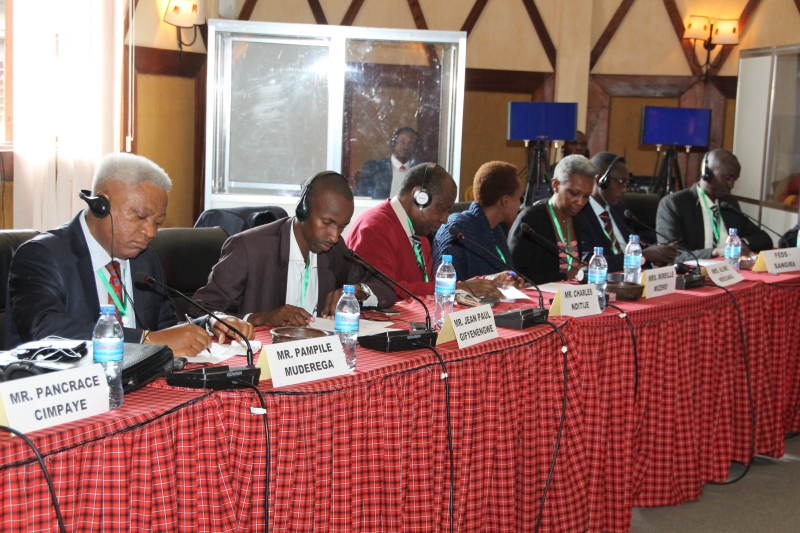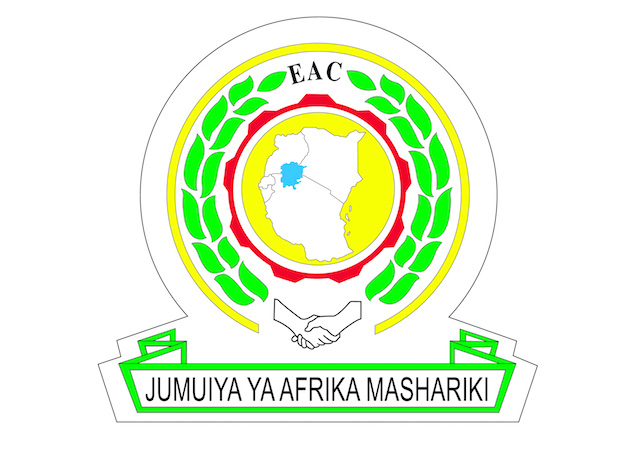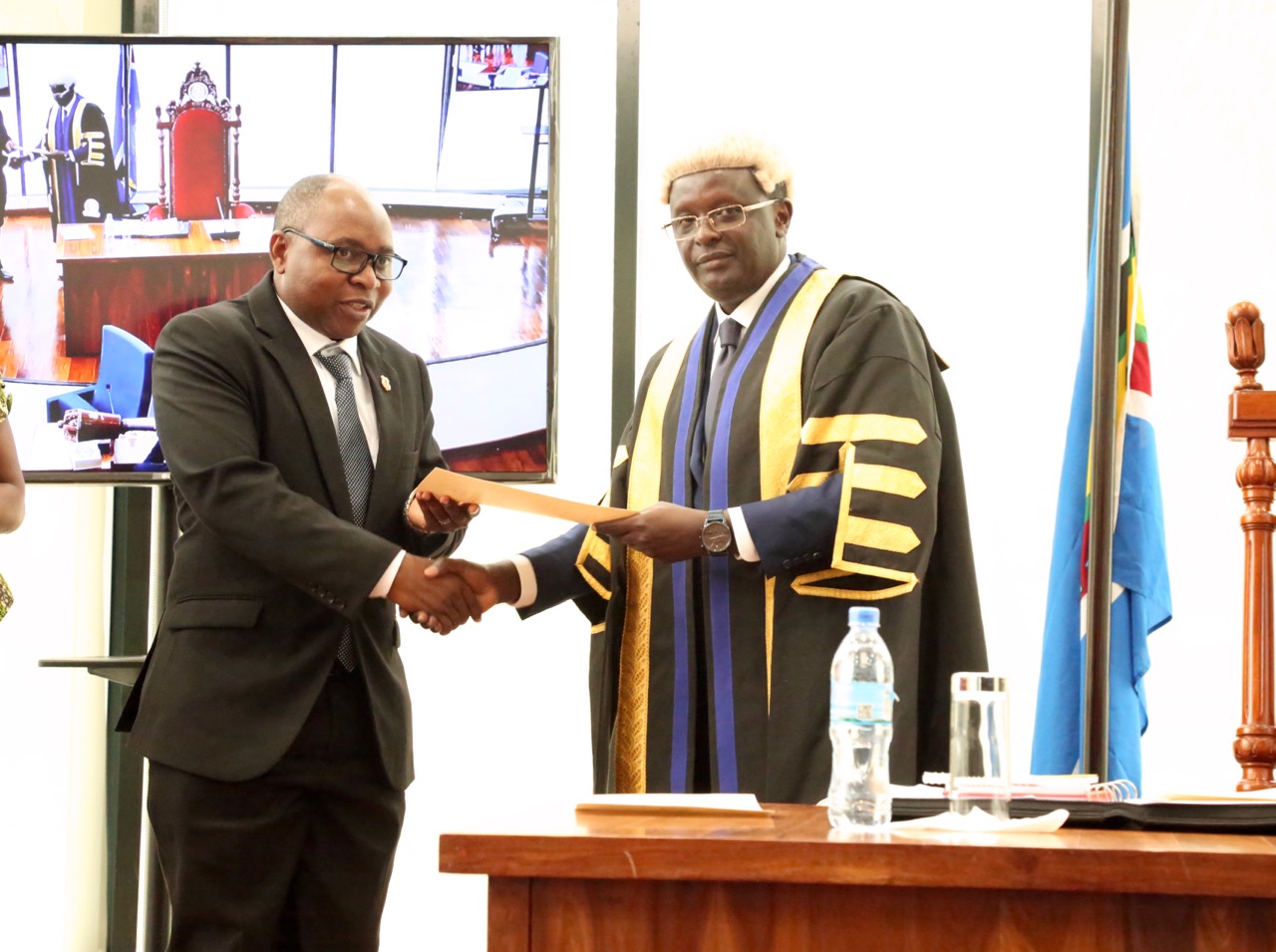
Posted in Press Release
East African Community Secretariat, Arusha, Tanzania, 29th October, 2018: The 5th and Final Round of the Inter-Burundi Dialogue bringing together political parties and political actors in the Burundian conflict came to a close today at the Ngurdoto Mountain Lodge in Arusha, Tanzania.
The five-day talks were not attended by the government of Burundi and the ruling CNDD-FDD party but their views were taken in through the Kayanza Roadmap of 2018.
Prior to the talks by the political parties and actors, there had been a three-day session between the Facilitator and the alternative voices in Burundi, namely civil society, women, youth and the media.
Speaking at the closing session of the Dialogue, the Facilitator to the talks, retired Tanzanian President Benjamin William Mkapa, said that he would recommend to the Mediator and the EAC Summit to keep in mind the situation in Burundi and to engage both the Government of Burundi and the opposition to agree on the remaining points of disagreement, so that preparations on the holding of free, fair and credible elections in 2020 could be undertaken.
H.E. Mkapa hailed the participants for their dedication to the Dialogue and for producing a good quality roadmap that he said would be useful in resolving the problem in Burundi.
He further thanked the participants for being able to organise themselves and work in one group irrespective of their political affiliations.
The Facilitator said that this would be the last session he would be presiding over as the EAC Facilitator.
“In this regard, I will submit the roadmap that you have developed, the Kayanza Roadmap 2013 and that of 2018, together with a full report of the Dialogue process to the Mediator and through the Mediator to the EAC Summit for reflection on the way forward,” he said.
President (rtd) Mkapa thanked the Government of Burundi, the ruling party, opposition political parties in Burundi and outside, key political actors, civil society organisations, women, youth, media, religious groups and the international community for participation in and support for the Dialogue that started in 2016.
“Also, I wish to thank the Special Envoys of the International Contact Group for their concerns and interactions. Special thanks go to EAC, the AU, UN, EU and others for their financial support so far,” he said.
NOTES TO EDITORS:
The Summit of EAC Heads of State in 2015 appointed Ugandan President Yoweri Museveni as the Mediator in the Burundian conflict. The Summit also appointed retired Tanzanian President Benjamin William Mkapa as the Facilitator to the Burundi Dialogue.
The Kayanza I Roadmap was a UN sponsored initiative that sought to tackle issues surrounding the 2015 general election. It brought together government and other stakeholders including the ruling party and opposition parties.
Kayanza II (2018) Roadmap is largely a roadmap by government and the ruling CNDD-FDD Party towards the 2020 election.
The internal and external opposition groups who not party to Kayanza II roadmap met in Entebbe, Uganda in September 2018 and came up with the Entebbe Roadmap to the 2020 election in Burundi.
It is these documents that the Facilitator wanted the participants in the 5th Dialogue to combine into a common roadmap to the 2020 election that the Facilitator will present to the Summit of EAC Heads of State.
-ENDS-
For more information, please contact:
Mr Owora Richard Othieno
Head, Corporate Communications and Public Affairs Department
EAC Secretariat
Arusha, Tanzania
Tel: +255 784 835021
Email: OOthieno [at] eachq.org
About the East African Community Secretariat:
The East African Community (EAC) is a regional intergovernmental organisation of five Partner States, comprising Burundi, Kenya, Rwanda, Tanzania and Uganda, with its headquarters in Arusha, Tanzania.
The EAC Secretariat is ISO 9001:2008 Certified

Posted in Press Release
The International Residual Mechanism for Criminal Tribunals (Mechanism) and other international, regional and sub-regional organizations in Arusha, including the African Court for Human and Peoples’ Rights, the African Institute of International Law; the African Union Advisory Board on Corruption, the East African Community and its Organs and Institutions, the East, Central and Southern Africa Health Community, the Eastern and Southern African Management Institute, and the Pan African Postal Union, will host the second Arusha International Organizations Open Day on Saturday, 3 November 2018.
Similar to last year, this year’s event will take place from 10:00 to 17:00 at the premises of the Mechanism at Lakilaki, Arusha, Tanzania.During the Open Day, the public will have the opportunity to listen to welcoming speeches from Mechanism Judge William H. Sekule, the Heads of the International Organizations, and from the guest of honour, the Minister of Foreign Affairs and East African Cooperation of the United Republic of Tanzania, the Hon. Dr. Augustine Mahiga, or his representative, as well as from the Regional Commissioner for Arusha and the Lord Mayor of the city of Arusha.
Following these speeches, there will be a variety of presentations through the course of the day at the courtroom and the stands of the respective international organizations.As part of the programme, presentations will be given by representatives of the Mechanism, including by Judge Sekule.
In addition, documentaries produced by the International Criminal Tribunal for Rwanda (ICTR) will be screened, including the documentaries entitled “Justice Today” and “The Path to Reconciliation.
The public will also have the opportunity to visit an exhibition at the library about the rich archives of the ICTR and the International Criminal Tribunal for the former Yugoslavia.
There will also be a medical team present to conduct free medical check-ups, as well as a children’s corner with activities for the younger visitors.
The Arusha International Organization’s Open Day is an annual event which aims to provide the general public with an opportunity to learn more about the mandate and functioning of the various international institutions based in Arusha. Snacks and refreshment will be served.
Getting to the IRMCT
The easiest way to get to the Mechanism by public transportation will be as follows:
Route 1: Njiro – Kijenge – City Center – Nairobi Road Junction – Lakilaki, Kisongo
Pick-up Points
i. Arusha Institute of Accountancy
ii. Impala Roundabout
iii. Clock Tower Roundabout
iv. Nairobi Road Junction – Lakilaki, Kisongo
Route 2: Sakina – Fortes – Majengo – Cultural Heritage – Lakilaki, Kisongo
Pick-up Points
i. Technical College
ii. Fortes
iii. Cultural Heritage – Lakilaki, Kisongo
Route 3: Kimandolu Cette Garden – Sanawari – Regional Commissioner’s Office – Benson Shop – Lakilaki, Kisongo
Pick-up Points
i. Kimandolu Cette Garden
ii. Phillips
iii. Sanawari
iv. Clock Tower Roundabout – Lakilaki, Kisongo
Route 4: Ngaramtoni ya juu – Majengo – Dodoma Road – Lakilaki, Kisongo
Pick-up Points
i. Ngaramtoni ya juu
ii. Majengo
iii. Majengo/Dodoma Road junction
-ENDS-
For more Information Contact:
Saida Joy Kessy,
External Relations,
Arusha Branch, UN International Residual Mechanism for Criminal Tribunals,
(Mechanism) IRMCT
Haki Road, Plot No. 486 Block A, Lakilaki Area, Arumeru District, P.O. Box 6016,|Arusha, Tanzania |Office B-031,
Tel: +1 212 963 2850 Ext 5013 (via New York); 179-5013,
Direct: +255 27 256 5013/+255767466696 (international)
This email address is being protected from spambots. You need JavaScript enabled to view it.


